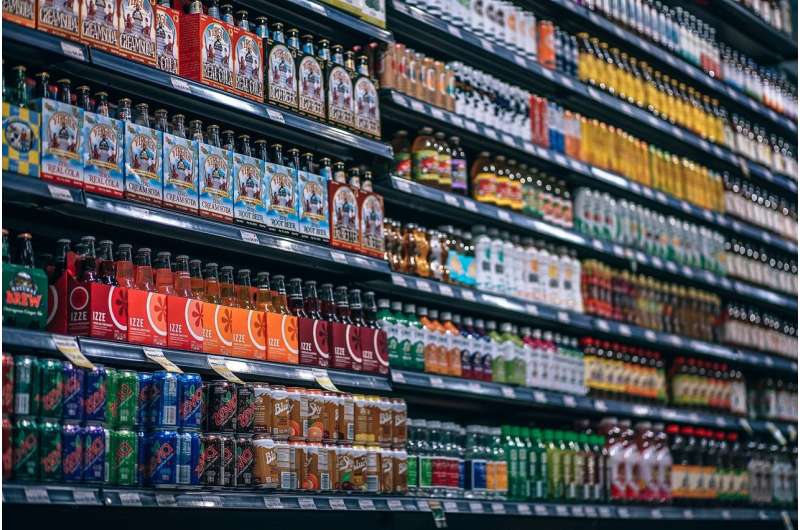Sweet drink labels leave a sour taste

"Health halos" are making it harder for consumers to know which drinks are good for them according to a new study published today in the internationally peer-reviewed journal Public Health Nutrition.
The study's lead author, Aimee Brownbill, a Ph.D. student with the University of Adelaide School of Public Health and SAHMRI Population Health Research Group, is calling for more transparency in the marketing of drinks, including clearer declarations of their sugar content.
"We regularly see products being marketed as 'natural' or 'pure' or any number of other descriptors because your average consumer associates these terms with being healthy," Ms Brownbill said.
"It is misleading to consumers when these features appear on the labels of sugary drinks. A drink with 'no added sugar' can still contain more than the recommended daily intake for sugar.
"Claims that sports drinks make about 'replenishing your electrolytes' are another example.
"Unless you're an elite athlete who's regularly doing endurance exercise, or you've been suffering from a nasty gastro bug, you're not going to be dehydrated to the point that you need electrolytes beyond what your normal diet would deliver."
Ms Brownbill and her colleagues investigated how "better-for-you" features on drink labels were being used to create a healthy image.
"Better-for-you features describe anything that positions a product as healthy," Ms Brownbill said.
"Words like 'fresh', 'raw' and 'organic' don't tell you much at all about the health value of the product they're advertising. And don't get me started on 'superfoods'.
"Pictures are often featured as well, such as fruit and vegetables or sports stars and sporting equipment. Really anything that will associate the product with an active, healthy lifestyle."
The research survey of 945 labels on sugar-containing drinks, sampled from 17 supermarkets across Adelaide, found almost 90 per cent of products displayed "better-for-you" features, most commonly on coconut waters, iced teas, sports drinks and fruit juices.
The most prominent "better-for-you" claims were 'natural', 'reduced sugar' and the suggestion the product meets bodily nutrition or health needs.
This research is an extension of this team's recent work on Health Star Ratings that was published in the Health Promotion Journal of Australia.
More information: Aimee L. Brownbill et al. Health Star Ratings: What's on the labels of Australian beverages?, Health Promotion Journal of Australia (2018). DOI: 10.1002/hpja.197
Aimee L Brownbill et al. Industry use of 'better-for-you' features on labels of sugar-containing beverages, Public Health Nutrition (2018). DOI: 10.1017/S1368980018002392



















